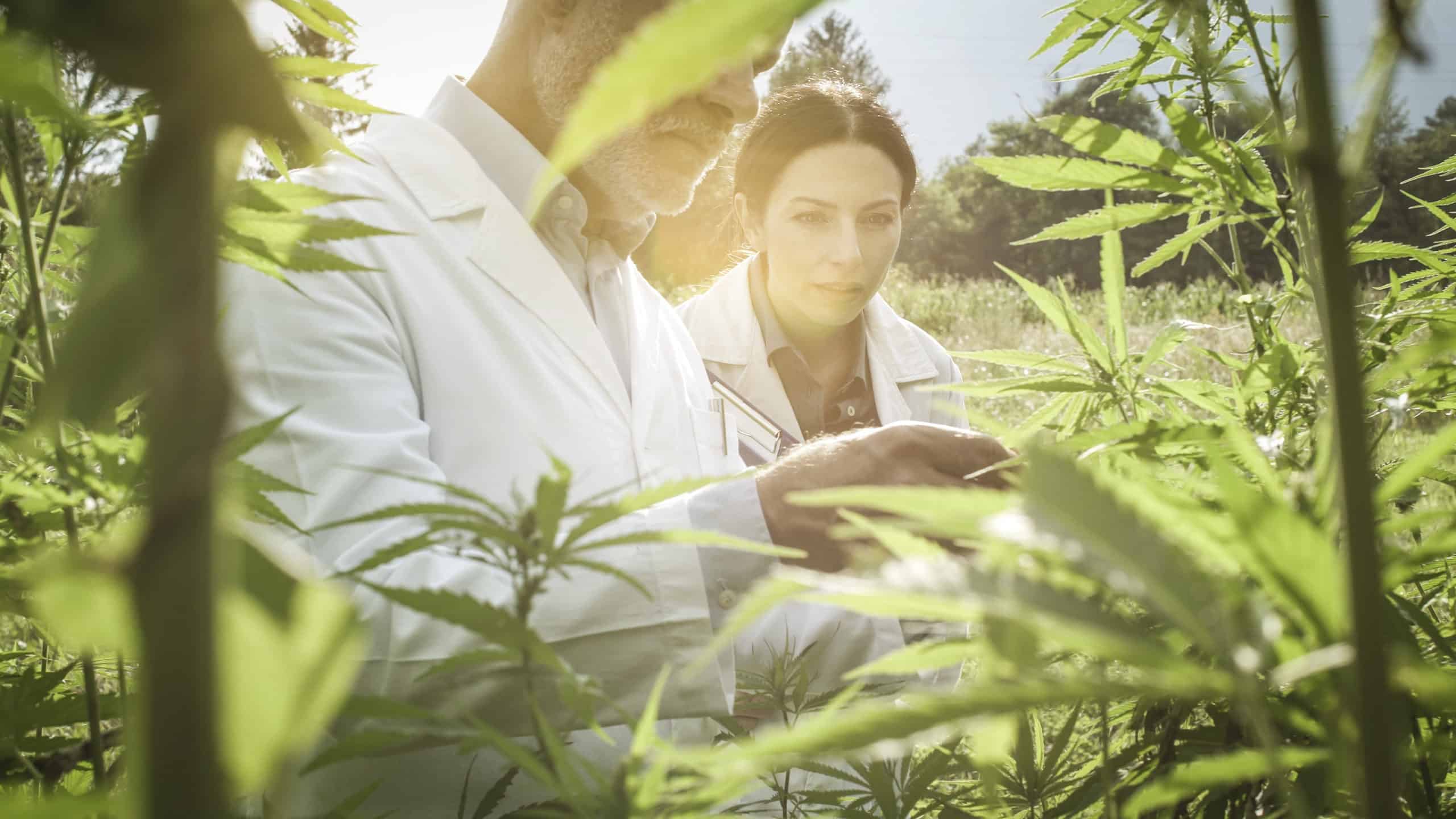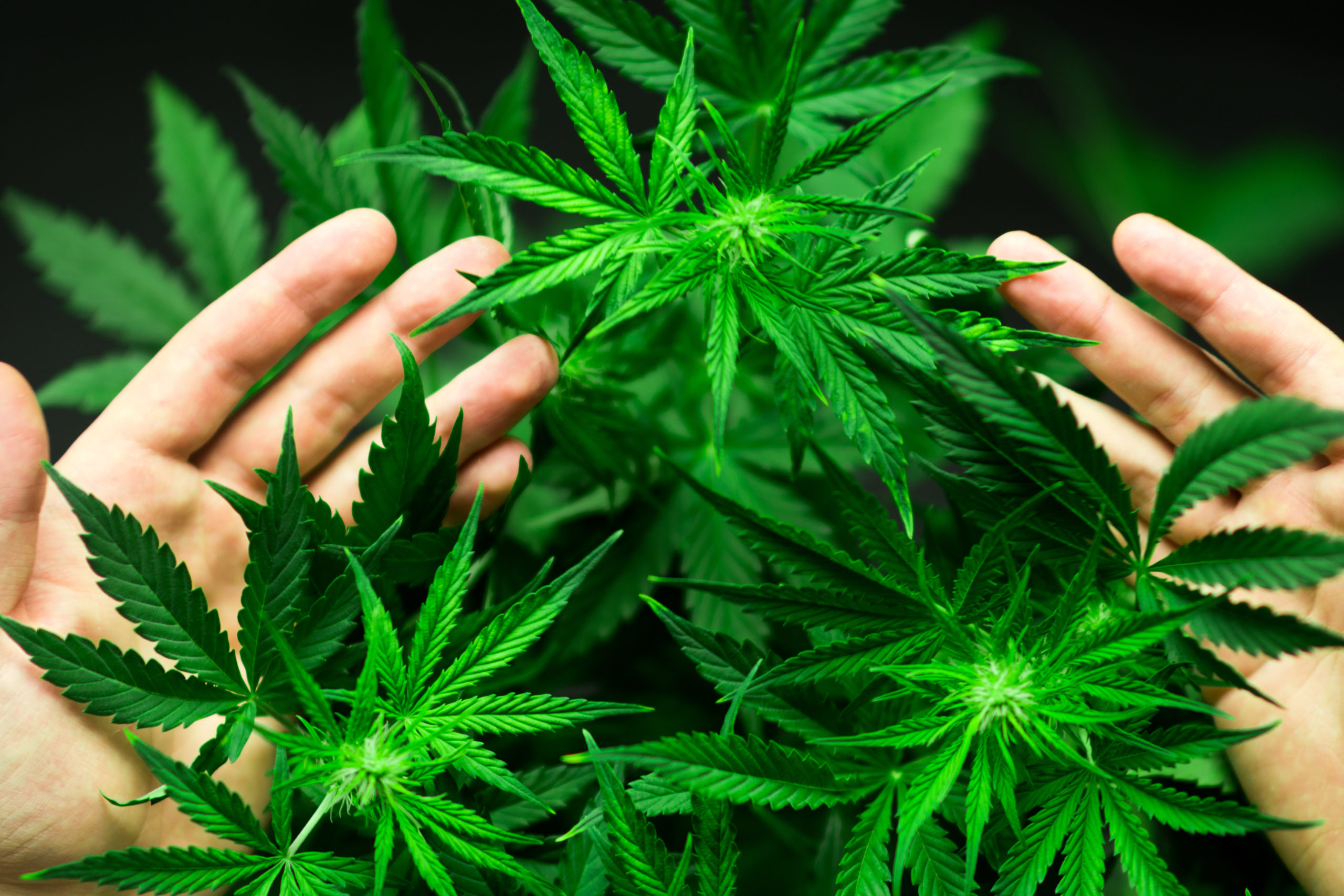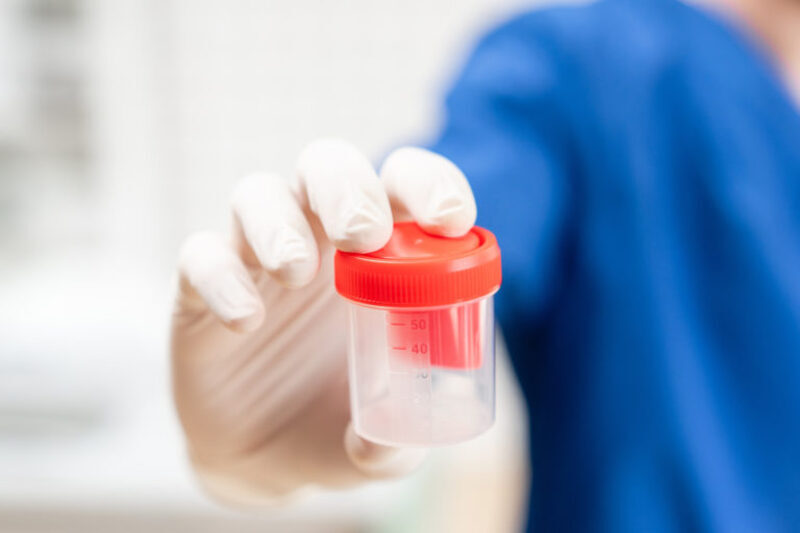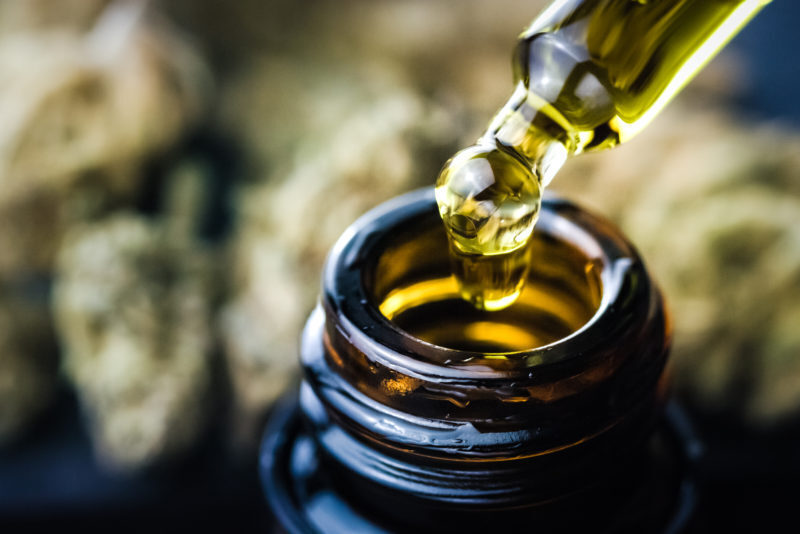-
- Market Research
- |
- CBD Near Me
- |
- Giveaways
- |
- Newsletter
- |
- Contact
- |
- Advertise
- |
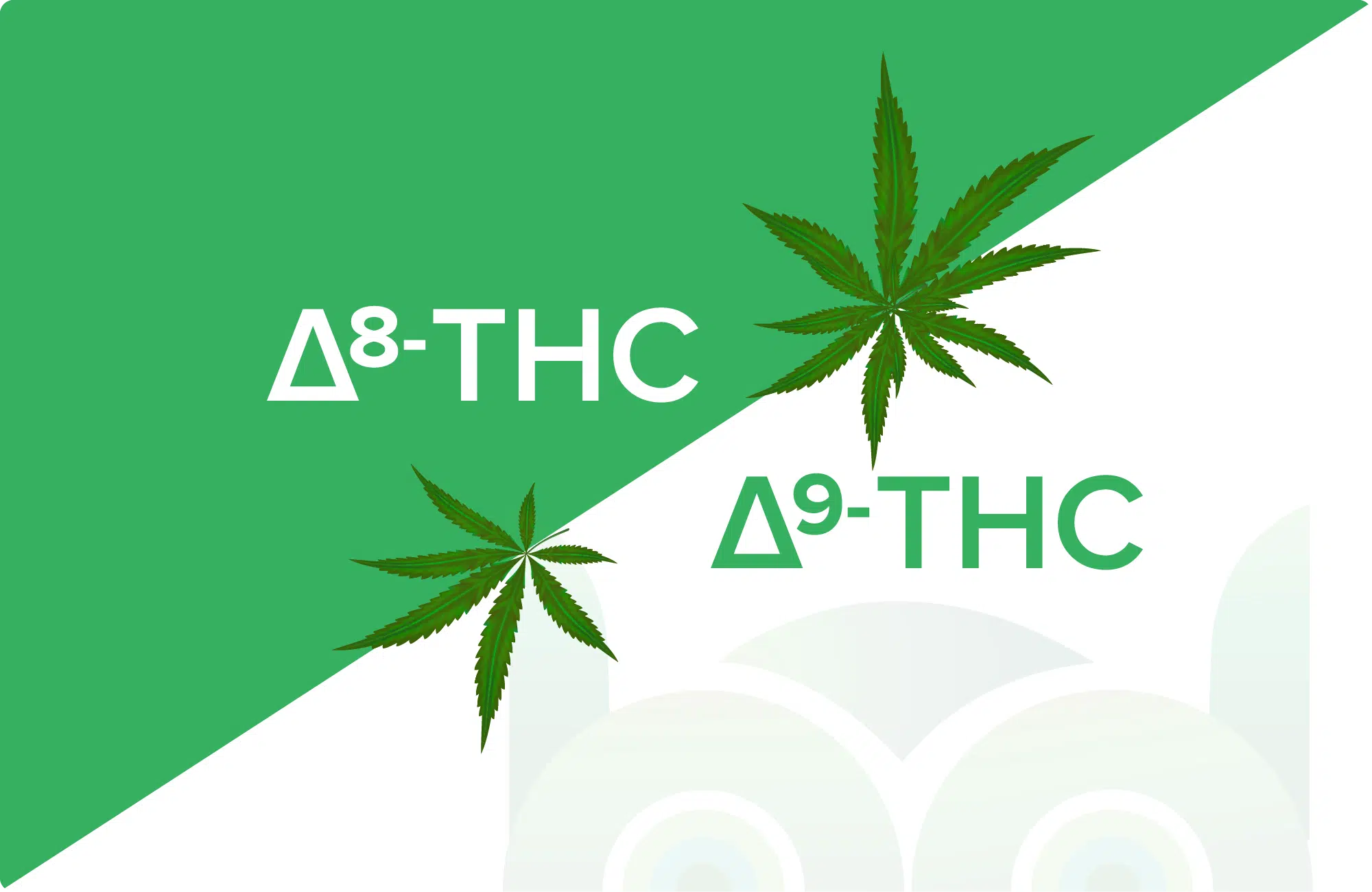
It’s amazing how an extra atom here or a spun-around molecule there can significantly alter the way a compound interacts with the body, but such is life—literally.
The many similarities and differences between delta-8 and delta-9 THC provide a fitting example of this effect, though this beautifully nuanced chemistry is often lost in the politicized debate these compounds find themselves constantly embroiled in.
If you’re not wearing a lab coat, don’t worry—here’s a plain-speak explanation of the similarities and differences between delta-8 and delta-9 THC.
First things first, we can’t compare and contrast these cannabinoids if we don’t know what they are (or what the heck a “cannabinoid” is).
The Differences Between Delta-8 and Delta-9
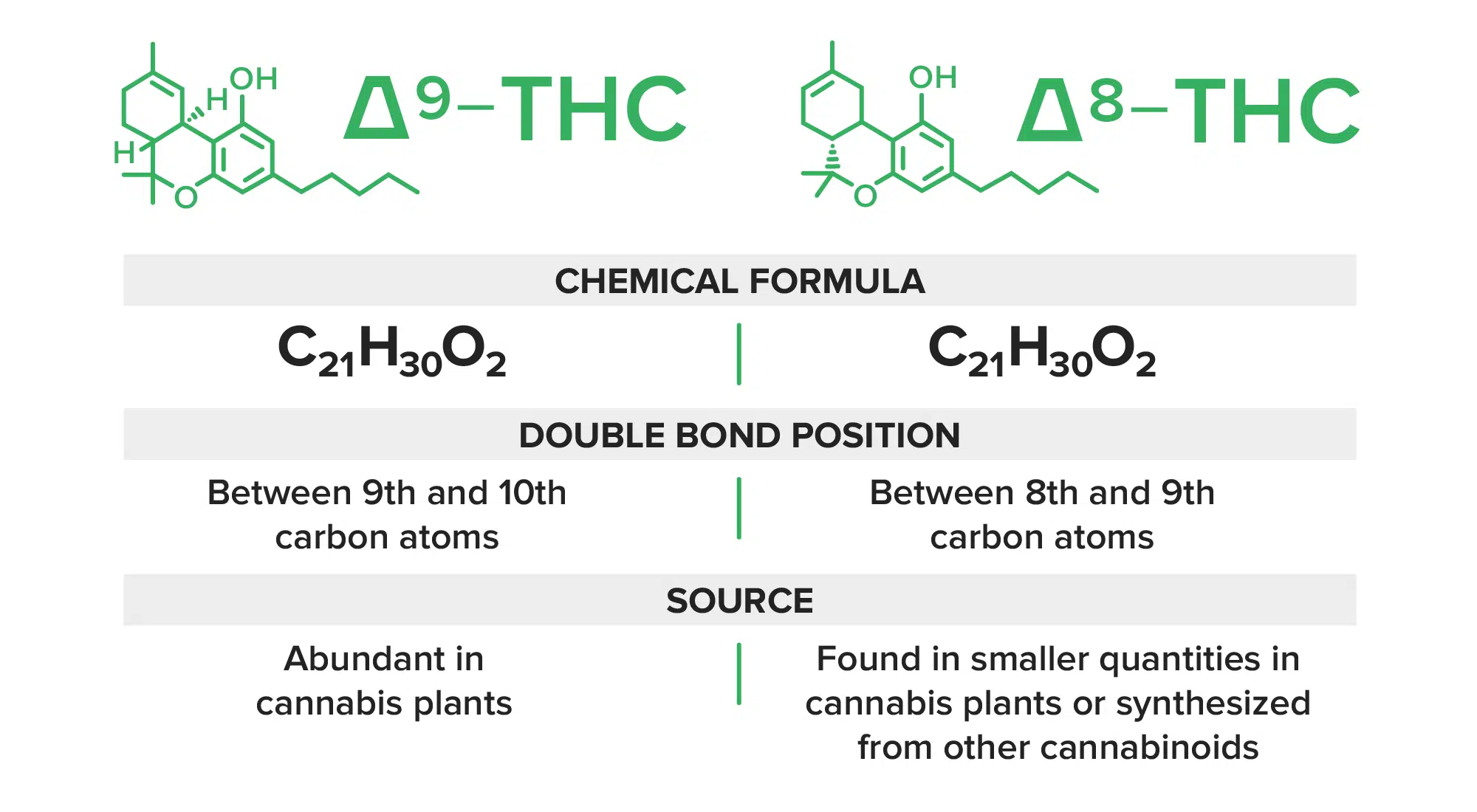
Delta-9 and delta-8 THC (tetrahydrocannabinol) are psychoactive compounds native to cannabis plants, referred to along with 100+ other cannabis-based compounds as “cannabinoids.”
Psychoactive, by the way, refers to a substance or drug that can cause changes in your mood state or other key brain states/functions.
Alongside CBD (cannabidiol), delta-9 THC is one of the most abundant cannabinoids in cannabis plants, where delta-8 is usually found in considerably smaller quantities.
You can breed hemp plants to select for higher amounts of “naturally occuring” delta-8 THC, but it’s very unlikely you’ll reach a product-grade concentration without synthesizing the compound from other cannabinoids.
The chemical formula for both delta-8 and delta-9 THC is the same: C21H30O2.
As mentioned, subtle differences in how these atoms interact with each other gives each form of THC its unique differences.
In this case, delta-9 THC has a double bond between two carbon atoms that starts on the ninth carbon, where delta-8 has the same bond starting on the 8th carbon atom.
And, well, that’s it. This molecular difference between delta-9 and delta-8 alone gives each molecule unique attributes, though there is still a whole lot of overlap.
Delta-8 vs Delta-9 THC: Potency, Benefits, and More
The potency difference is easy to remember because it mirrors the natural abundance of these two compounds: delta-8 THC is considerably less potent than delta-9 THC.
That said, “potency” is a bit of a blanket term that sometimes forces apples and oranges into the same blender, so it’s important to know exactly what functions and/or medical benefits we’re seeing between delta-8 and delta-9 THC.
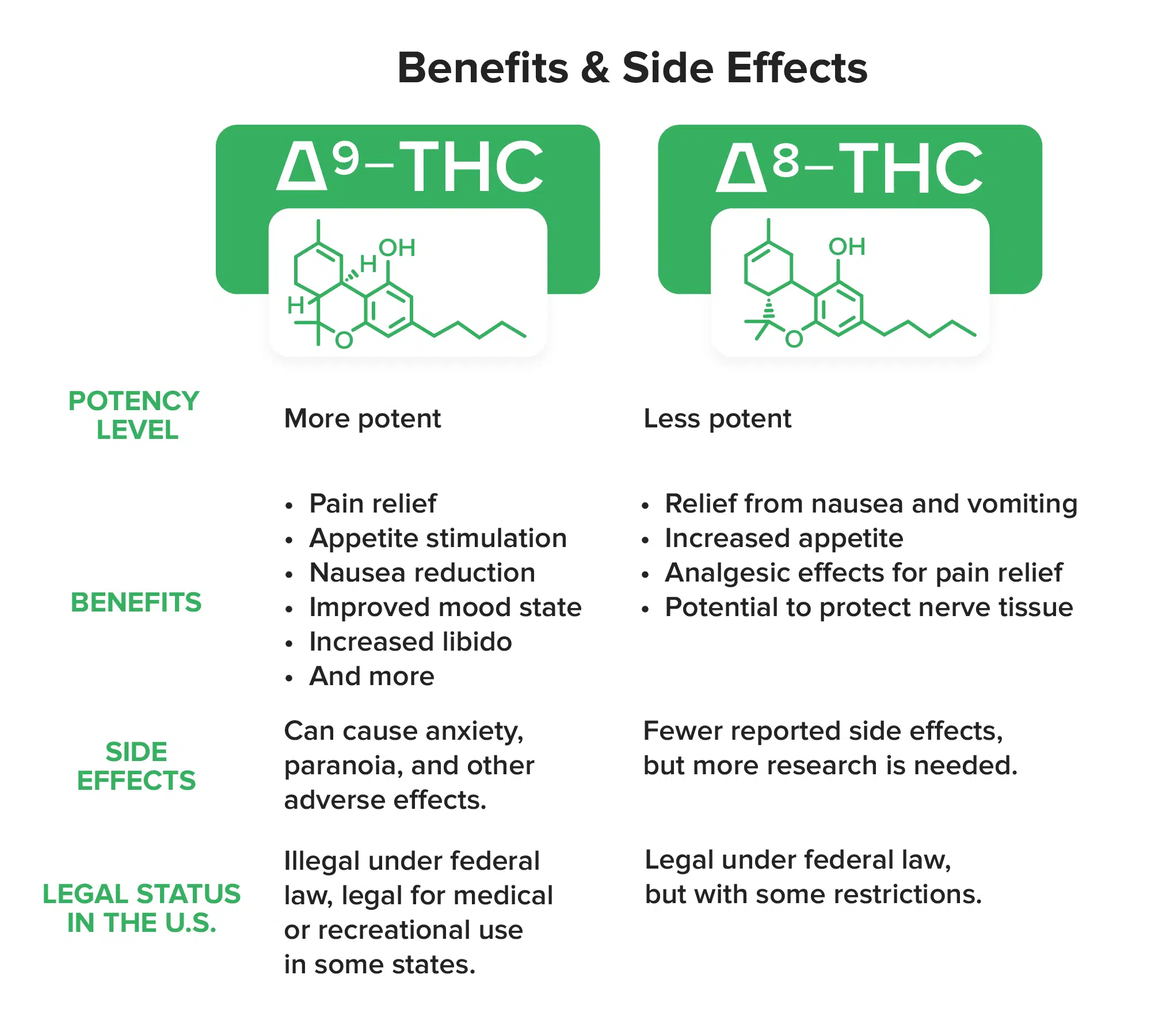
Benefits of Delta-8 and Delta-9 THC
Though more delta-8 THC research is definitely needed, this information sheet by PubChem identifies these benefits:
- Nausea and vomiting relief
- Stress relief
- Increased appetite
- Analgesic effects (pain)
- Potential to protect nerve tissue
Delta-9 THC has also been associated with stress relief, improved appetite, and nausea control, though there are plenty of clinically significant differences in how it interacts with the body. Here are some examples:
- Euphoria, improved mood state
- Improved sensory perception
- Enhanced creativity
- Improved libido
As for what cannabis users subjectively report, the majority agree that delta-8 THC is milder, making it (reportedly) less likely to cause paranoia, increased anxiety, or an intense high that interferes with basic tasks.
Legality
Finally, it’s time to address the elephant in the room: the legal situation.
However contentious delta-9 THC (and cannabis in general) may still be, it’s a hot button that we’ve all had our thumbs on since before the 1930s, whereas the popularizing of delta-8 THC products was very much a sudden shock.
Hence, states across the country have reacted to delta-8 THC differently, many severely restricting the manner in which it is (synthetically) produced, while others take a more passive stance as they closely monitor the cannabinoid.
The FDA and CDC issued warnings to the public about Delta-8 THC in late 2021, and a couple months later, the DEA confirmed it is not a controlled substance.
In other words, delta-8 THC is still a bit polarizing, and several states have cracked down on it significantly, but you can still find plenty of delta-8 THC products online. Just, you know—don’t necessarily buy them at a gas station.
Summary
Summarizing our breakdown of the delta-8 and delta-9 THC comparison are these major points:
Slightly Different Molecules: Both cannabinoids share the chemical formula C21H3002, but they differ on where a particular double bond is placed.
Potency and Benefits: Delta-8 THC is less potent than delta-9, and while the two share many benefits, you can consult the section above to see their differences.
Legality: “Hey, first time?” Says delta-9 to delta-8 THC as it is ping-ponged about by continually shifting guidelines. Where and how these cannabinoids are restricted does vary, but the fact that they’re constantly being debated and legislated for or against is very much a commonality.
Delta-9 Versus Delta-8 THC FAQ
Does Delta 9 get you higher than delta-8?
Generally, yes.
Concentration, concurring medications, the form of the product, and other factors can considerably affect how potent each cannabinoid is, but if you take them both in the same circumstances, delta-9 causes a stronger high.
What is better for sleep, Delta-8 or Delta 9?
The most reliable answer is that we aren’t completely sure yet.
Though delta-9 THC is more potent, and can produce a calming effect just like delta-8 THC, some delta-8 users swear by this cannabinoid as the more effective aid.
We need to hold out for more cannabis research on this one.
Is Delta 9 natural or synthetic?
Delta-9 is a naturally occurring constituent of the cannabis plant. However, synthetic forms of delta-9 THC do exist.
Will Delta-8 show up on a drug test?
Wouldn’t you know, we have an entire article dedicated to this question. Spoiler alert: yes.
Key Takeaways
Delta-8 and delta-9 THC are psychoactive cannabinoids found in hemp plants that differ very slightly in their molecular structure.
Delta-8 is found in much smaller quantities in hemp plants, where as delta-9 THC is more abundant, similar to CBD.
Many of the effects of these compounds overlap, but they are also different in their potency (delta-8 elicits a milder high) and benefits to a degree.
You can buy both delta-8 and delta-9 THC products online, but check your local laws before purchasing either at a brick-and-mortar retail outlet.




